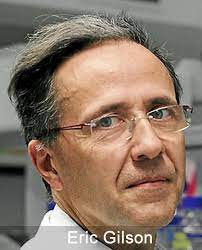 Eric Gilson, PhD
Eric Gilson, PhD
Eric GILSON, PhD.
Member of Academia Europaea
Director of the Institute for Research on Cancer and Aging of Nice, France (IRCAN)
Professor of Cell biology at the Medical School of Nice, University Côte d’Azur, Nice, France
Scientific director of the cross-cutting Inserm program on aging (AGEMED) and of the international program InterAging.
Before the 90’s, telomeres were mostly considered as DNA repeats of a certain length depending on the presence of telomerase. Overall, the work of Eric Gilson contributed to broaden this view by revealing an unusual organization of telomeric chromatin and unexpected links between this chromatin, telomere length, regulation and chromosome end stability and senescence. Therefore, his work had and still has a strong influence not only for telomere people but also for researchers working on the higher-order structure of chromatin, replication, DNA damage response, cancer, and aging. Nowadays, the main objective of Eric Gilson research is to provide an integrated description of the telomere signaling pathways involved in aging and malignant transformation.
In addition to his director position at IRCAN, Eric Gilson is also the Coordinator of the International Laboratory in Cancer, Aging and Hematology, Jiaotong University School of Medicine of Shanghai, Inserm, CNRS, University Côte d’Azur, Co-head with Pr J. YE and Y. LU of a team on telomeres at the Medical center on Aging of Shanghai Ruijin Hospital.
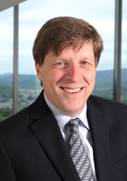 Brian Kennedy
Brian Kennedy
Director, Centre for Healthy Longevity
Professor
Departments of Biochemistry and Physiology
National University of Singapore
Singapore
Dr. Brian Kennedy is a Distinguished Professor in the Departments of Biochemistry and Physiology at the Yong Loo Lin School of Medicine, National University Singapore. He serves as co-Director of the Centre for Healthy Longevity at the National University Health System and Director for the Healthy Longevity Translational Research Programme and the Asian Centre for Reproductive Longevity and Equality. Collectively, NUS ageing research seeks to demonstrate that longevity interventions can be successfully employed in humans to extend healthspan, the disease-free and highly functional period of life.
From 2010 to 2016, Dr. Kennedy was the President and CEO of the Buck Institute for Research on Aging and he maintained a professorship there through 2020. Dr. Kennedy has an adjunct appointment in the Department of Biochemistry at the University of Washington and, where he was a faculty member from 2001 to 2010. Dr. Kennedy is also actively involved with a number of Biotechnology companies and also served as a Co-Editor-In-Chief at Aging Cell from 2011-2021. Finally, Dr. Kennedy has a track record of interaction in China, where he was a Visiting Professor at the Aging Research Institute at Guangdong Medical College from 2009 to 2014. His Ph.D. was performed in the laboratory of Leonard Guarente at M.I.T., where he published the first paper linking Sirtuins to aging.
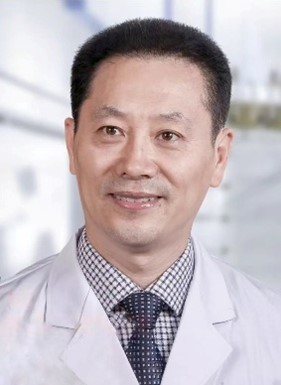 Robert Chunhua Zhao, M.D. PhD.
Robert Chunhua Zhao, M.D. PhD.
President, International Society on Aging and Disease (ISOAD)
Cheung Kong Scholar
Tenured Professor, Chairman at Center of Excellence in Tissue Engineering, Chinese Academy Medical Sciences & Peking Union Medical College
Dean, School of Life Sciences, Shanghai University
Director, Beijing Key Laboratory of New Drug Development and Clinical Trial of Stem Cell
Fellow, European Academy of Sciences, Arts and Humanities (EASAL)
Professor Zhao has been committed to stem cell biology, pharmacy, and clinical application for more than 30 years. He is the chief scientist of projects such as the National 973 Program, 863 Program, National Key R&D Program, etc. He has internationally proposed the concept of “Post-embryonic pluripotent stem cell theory”. He has published over 400 papers in international and domestic journals, with an H-index of 71. And from 2014 to 2022, he has been selected as a highly cited China scholar by Elsevier for 9 consecutive years. In 2004 his group won the first official approval of “mesenchymal stem cell” from SFDA as to start clinical trials in China. He was awarded the 1st Prize of Technological Invention from MOE and the 2nd Prize of National Technological Invention. He has established a translational medical system that integrates basic theories of integrated stem cells, key scientific technologies, and clinical trial treatment research.
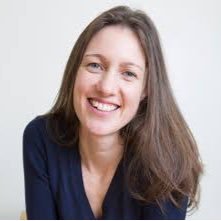 Georgina Ellison-Hughes, Ph.D.
Georgina Ellison-Hughes, Ph.D.
Professor of Regenerative Muscle Physiology
School Academic Lead (Development, Diversity & Inclusion)
King's College London
United Kingdom
Georgina Ellison-Hughes completed her PhD from Liverpool JM University, UK and postdoctoral studies at New York Medical College, and an AHA-funded fellowship at Mount Sinai School of Medicine, NYC, USA. She is Professor of Regenerative Muscle Physiology and Marie Curie Fellow at King’s College London, UK. Her research is at the forefront of cardiac regeneration/repair and targeting senescence, and has made a seminal contribution in the paradigm shifting work to establish the adult heart as a self-renewing organ with regenerative potential. She has published more than 70 peer-reviewed papers in reputed journals (Total Impact Factor = 510; Citations = 4750; H-index =36 (Scopus)) and is an Editorial Board member of Journal of Cardiovascular Aging, Scientific Reports, BMC Molecular and Cell Biology, PharmAdvances, Frontiers in Pharmacology - Cardiovascular and Smooth Muscle Pharmacology, Frontiers in Cardiovascular Medicine - Cardiovascular Biologics and Regenerative Medicine.
 Dr. Björn Schumacher
Dr. Björn Schumacher
Head of Research Area C – Principal Investigator
Chair for Genome Stability in Ageing and Disease
CECAD Research Center
University of Cologne
50931 Cologne
Germany
Since 2013, Björn Schumacher is full professor and director of the Institute for Genome Stability in Ageing and Diseases (IGSAD) at the CECAD Research Centre of the University of Cologne. He received his PhD at the Max Planck Institute for Biochemistry in Munich and conducted his postdoctoral research as EMBO and Marie Curie fellow at the Erasmus Medical Centre in Rotterdam. Professor Schumacher is President of the German Society for DNA Repair (DGDR), co-Director of the Minerva Center of the Biological Mechanisms of Healthy Ageing at Bar-Ilan University (IL), and between 2014 and 2020 served as President of the German Society for Ageing Research (DGfA). Since 2023, Schumacher is speaker of the DFG Research Unit FOR 5504 on “Physiological causes and consequences of genome instability”. He was awarded with the Eva Luise Köhler Research Prize, the Innovation Prize of the State of North Rhine-Westphalia, the European Research Council (ERC) grant, coordinated the FP7 Marie Curie initial training network on chronic DNA damage in ageing (CodeAge) and served on several editorial boards. His research interest focuses on the molecular mechanisms through which DNA damage contributes to cancer development and ageing-associated diseases. Employing the C. elegans system and mammalian disease models, his group uncovered cell-autonomous and systemic responses through which the organism adapts to accumulating DNA damage with ageing. Through the understanding of the basic mechanisms of genome instability-driven ageing, Schumacher aims to contribute to the development of future strategies to prevent ageing-associated diseases.
G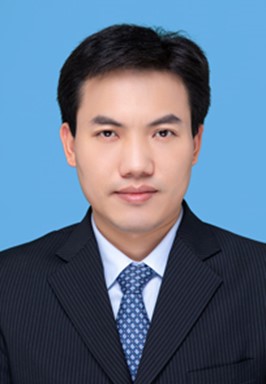 uo-He Tan, M.D., & Ph.D.
uo-He Tan, M.D., & Ph.D.
Professor,
Director of Key Lab of Longevity and Aging-related Diseases of Chinese Ministry of Education,
Director of Guangxi Key Laboratory of Brain Science, & Institute of Neuroscience,
Dean of School of Basic Medical Sciences, & Center for Translational Medicine,
Guangxi Medical University,
China
Dr. Guo-He Tan is the director of Key Lab of Longevity and Aging-related Diseases of Chinese Ministry of Education, the dean of School of Basic Medical Sciences & Center for Translational Medicine in Guangxi Medical University, the president of Guangxi Society for Anatomical Sciences, the council member of Chinese Society for Anatomical Sciences, who has about 20 years of research experience in neuroscience and anatomy. He started his academic career when he joined the staff of Chinese Academy of Sciences, where he earned a Ph.D. in neurobiology, to investigate the molecular and cellular mechanisms underlying neurological diseases. Thereafter, he moved to Guangxi Medical University and acts as a full-time professor in human neuroanatomy as well as principal investigator in brain sciences. Dr. Guo-He Tan has published a series of high-quality research papers in top-notch journals including Nature Neuroscience, Aging and Disease, Cell Research, and EMBO reports, that were cited over 1000 times till now. He is interested in the research area including neurodevelopment, stem cells, particularly pathogenesis of brain disorders.
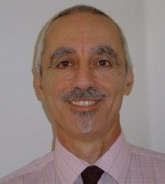 Marios Kyriazis, MD, MSc (Gerontology),
Marios Kyriazis, MD, MSc (Gerontology),
Head
National Gerontology Centre
Cyprus
Marios Kyriazis is Biomedical Gerontologist & Anti-aging Physician at the British Longevity Society and is on the Editorial Board of Rejuvenation Research.
Marios received primary and secondary education in Larnaca (Cyprus), and after military service, he studied Medicine at the University of Perugia and then the University of Rome (Italy). In 1982, he received his medical degree and went on to train as a junior doctor in a variety of hospital posts in Cyprus, New York (USA), Sheffield and Northampton (UK). In 1987, he gained a Bachelor of Arts degree and then studied for a Master of Science degree in gerontology at King’s College London (1990). He was awarded a Diploma in Geriatric Medicine by the Royal College of Physicians in 1990, and subsequently became a Chartered Biologist, Member of the Institute of Biology (UK).
In 1992, Marios founded the British Longevity Society, a nonprofit organization aiming to provide research-based information on healthy aging to the general public. He wrote on the subject of free radicals and antioxidants, and his paper on “Free Radicals and Ageing” (Care Elderly 1994;6(7):260–262), was the first to address the subject in a formal mainstream UK medical journal. He was the medical columnist for the consumer periodical “Yours magazine” for a period of four years, reaching over one million readers every month. In a series of almost 700 articles, lectures, and media appearances worldwide, he discussed the subject of “Healthy Aging and Longevity” both for scientists and for the general public.
His work receives media attention nationally and internationally. He has been interviewed widely by the daily and weekly national newspapers, television, and radio in the UK on matters related to healthy aging. He has also been featured on other media in several countries.
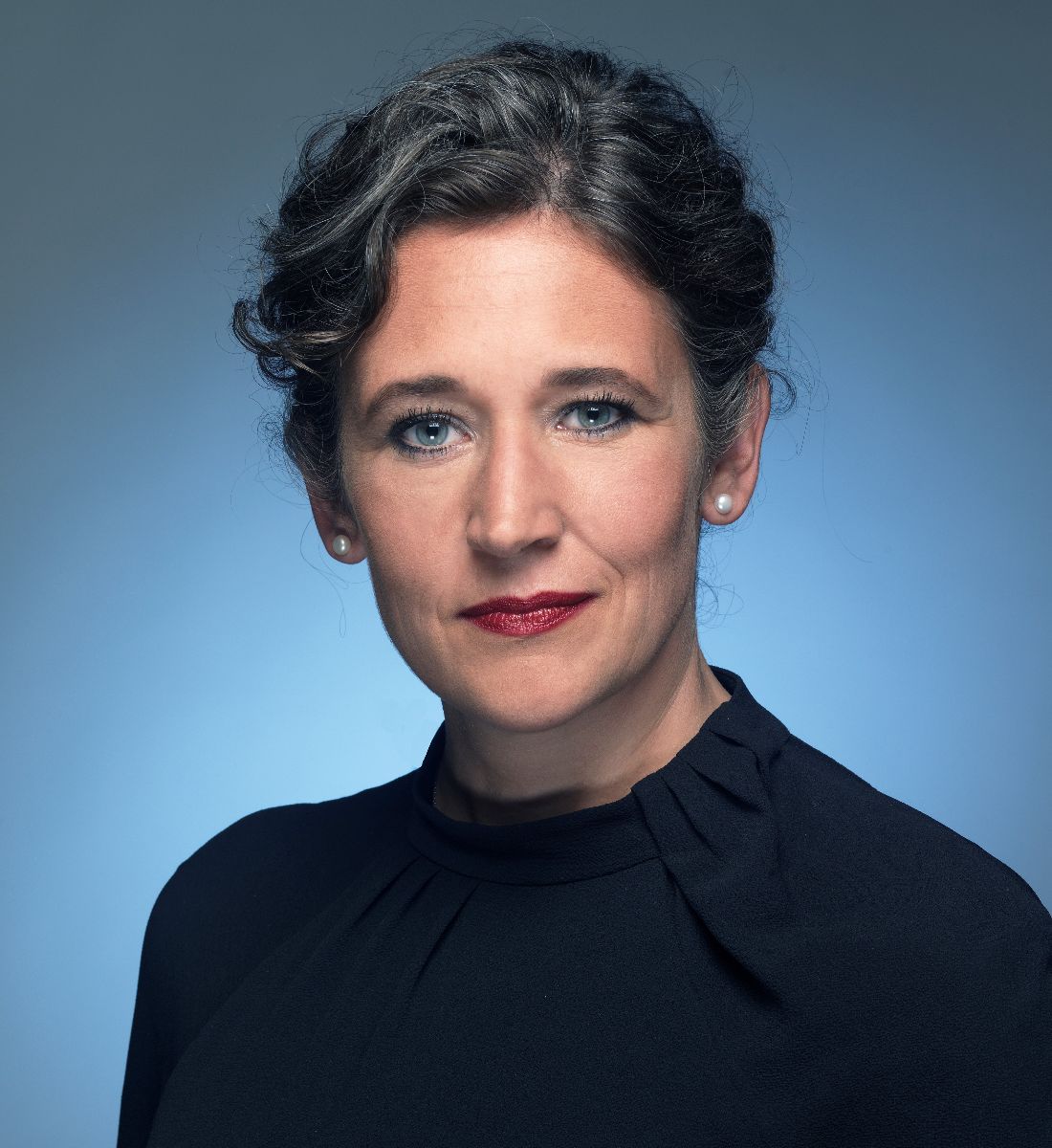 Andrea Britta Maier, MD PhD FRACP
Andrea Britta Maier, MD PhD FRACP
Oon Chiew Seng Professor in Medicine
Director, Healthy Ageing and Dementia Research
Yong Loo Lin School of Medicine,
National University of Singapore
Singapore
Andrea Maier, a Fellow of the Royal Australasian College of Physicians (FRACP), graduated in Medicine (MD) 2003 from the University of Lübeck (Germany), was registered 2009 in The Netherlands as Specialist in Internal Medicine-Geriatrics and was appointed Full Professor of Gerontology at Vrije Universiteit Amsterdam (The Netherlands) in 2013. She was the head of Geriatrics at the Vrije Universiteit Medical Center from 2012 to 2016. From 2016 to early 2021 Professor Maier served as Divisional Director of Medicine and Community Care at the Royal Melbourne Hospital, Australia, and as Professor of Medicine and Aged Care at the University of Melbourne, Australia. She continued her career at the National University of Singapore as Co-Director of the Centre for Healthy Longevity. Professor Maier’s research focuses on unraveling the mechanisms of ageing and age-related diseases. During the last 10 years she has conducted multiple international observational cohort studies and intervention trials and has published more than 350 peer-reviewed articles, achieving an H index of 63, spearheading the significant contributions of her highly acclaimed innovative, global, multidisciplinary @Age research group. She is a frequent guest on radio and television programs to disseminate aging research and an invited member of several international academic and health policy committees, including the WHO. She is the past president of The Australian and New Zealand Society for Sarcopenia and Frailty Research, the founding president of the Healthy Longevity Medicine Society and serves as selected Member of The Royal Holland Society of Sciences and Humanities.
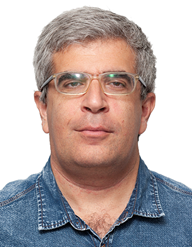 Ilia Stambler, Ph.D.
Ilia Stambler, Ph.D.
Chairman and CSO
Vetek (Seniority) Association – The Movement for Longevity and Quality of Life, Israel
Board member. International Longevity Alliance.
Policy Director. Global Healthspan Policy Institute
Israel
Ilia Stambler, PhD, is Director of Research and Development at Shmuel Harofe Geriatric Medical Center in Beer Yaakov, Israel (Affiliated to Sackler School of Medicine, Tel-Aviv University) and Chief Science Officer of “Vetek” (Seniority) – the Movement for Longevity and Quality of Life (Israel). He received his PhD at the Department of Science, Technology and Society, Bar Ilan University, Israel. His research has focused on the historical and social implications of aging and life extension research. He is also involved in mathematical modeling of aging and aging-related diseases (https://ec.europa.eu/eip/ageing/commitments-tracker/a3/quantified-longevity-guide-qlg_en). He is the author of the books "A History of Life-extensionism in the Twentieth Century" and "Longevity Promotion: Multidisciplinary Perspectives" (www.longevityhistory.com).
He is actively involved in advocacy for aging and longevity research (www.longevityforall.org), serving as the chairman of the Israeli Longevity Alliance (http://www.longevityisrael.org/), executive committee member of the International Society on Aging and Disease (http://www.isoad.org/) and International Longevity Alliance (http://www.longevityalliance.org), fellow and policy director at the Global Healthspan Policy Institute (https://healthspanpolicy.org/).
His papers have appeared in Progress in Neurobiology, Aging and Disease, Cancer Detection and Prevention, Rejuvenation Research, Current Aging Science, Global Aging, Mechanisms of Ageing and Development, Frontiers in Genetics, Geroscience, Encyclopedia of Gerontology and Population Aging, Encyclopedia of Biomedical Gerontology, and other scientific journals and books.
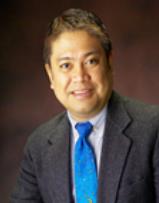 Abbe de Vallejo, PhD
Abbe de Vallejo, PhD
Tenured Professor of Pediatrics and Immunology, University of Pittsburgh School of Medicine
Associate Professor, Division of Rheumatology, UPMC Children’s Hospital of Pittsburgh
Director, Flow Cytometry Facility, John G. Rangos Sr. Research Center
Pittsburgh, USA
Abbe N. de Vallejo PhD is a highly regarded researcher and educator. He is Professor with Tenure at the University of Pittsburgh School of Medicine, holding academic appointments in the Departments of Pediatrics and Immunology. Dr. de Vallejo leads a research program on the Immunobiology of Aging, in which he uncovered the transcriptional basis for the irreversible loss of CD28, validating CD28null T cells as the unique bioindicator on T cell aging in humans. His current projects focus on the integrative physiology of healthy longevity, in which he advocates a research paradigm shift from the usual young-versus-old comparison to the analyses of defined elderly populations. He also leads a complementary program on the Biology of Inflammation, with primary interest on juvenile and adult arthritis and obesity. In arthritis biology, his research was the first to show premature T cell aging in the pathogenesis of juvenile arthritis. Dr. de Vallejo is author and co-author of numerous articles published in leading scientific journals. He served as associate editor of the Journal of Immunology, and a special issue editor of Aging Research Reviews. He is currently an editorial board member of Aging and Disease, and associate editor of Frontiers in Immunology. He was a recipient of the Julie Martin Career Award on Aging, and he serves on the National Scientific Advisory Council of the American Federation for Aging Research. He is a reviewer for more than 30 scientific journals and served (continue to serve) in study sections/advisory panels of various private foundations, research programs of academic institutions, and US federal agencies including the National Institutes of Health. He is member of the American Association of Immunologists, American College of Rheumatology, and Gerontological Society of America. Dr de Vallejo is fellow of The Royal Society of Medicine.

William C. Cho, Ph.D.
Biomedical Scientist
Department of Clinical Oncology
Queen Elizabeth Hospital
Hong Kong
China.
Email: williamcscho@gmail.com
Prof William Cho primarily focused on cancer studies with the aim of identifying biomarkers for cancer diagnosis, treatment prediction, and prognosis. As a seasoned researcher, I have employed various disciplines such as molecular biology, proteomics, genomics, immunology, and bioinformatics to conduct cancer research. I am proud to have contributed over 600 peer-reviewed papers to reputable journals including Lancet, Lancet Oncology, Annals of Oncology, Advanced Science, Nature Communications, Cancer Communications, PNAS, Science Advances, Journal of the National Cancer Institute, Journal of Extracellular Vesicles, Clinical Cancer Research, Molecular Cancer, and Theranostics, among others. These publications cover a wide range of topics including cancer biomarkers, non-coding RNAs, extracellular vesicles, drug repurposing and Chinese medicine. Additionally, I am an editor of over two dozen of books, including "MicroRNAs in Cancer Translational Research", "An Omics Perspective on Cancer Research", "Supportive Cancer Care with Chinese Medicine", "Drug Repurposing in Cancer Therapy: Approaches and Applications", and “Resistance to Anti-CD20 Antibodies and Approaches for Their Reversal” to name a few. Dr Cho published papers have garnered more than 25,000 citations and Dr Cho is being listed in the top 2% most influential scientists in the world.
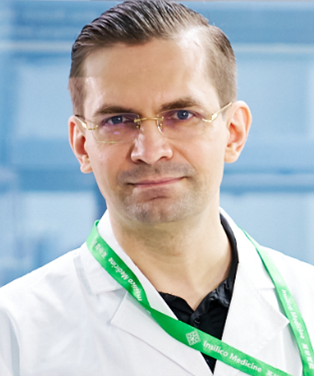 Alex Zhavoronkov, PhD
Alex Zhavoronkov, PhD
The founder and CEO of Insilico Medicine
Adjunct professor of artificial intelligence
Buck Institute for Research on Aging.
California
USA
Alex Zhavoronkov is a leader in next-generation generative artificial intelligence technologies for drug discovery and biomarker development. Under his leadership, Insilico raised over $400 million in multiple rounds from expert investors, opened R&D centers in six countries or regions, partnered with multiple pharmaceutical, biotechnology, and academic institutions, nominated 12 preclinical candidates, and entered human clinical trials with AI-discovered novel target and AI-designed novel molecule. Since 2015 he has invented critical technologies in the field of generative artificial intelligence and reinforcement learning (RL) for generation of novel molecular structures with the desired properties and generation of synthetic biological and patient data. Since 2012 he published over 160 peer-reviewed research papers and 2 books.
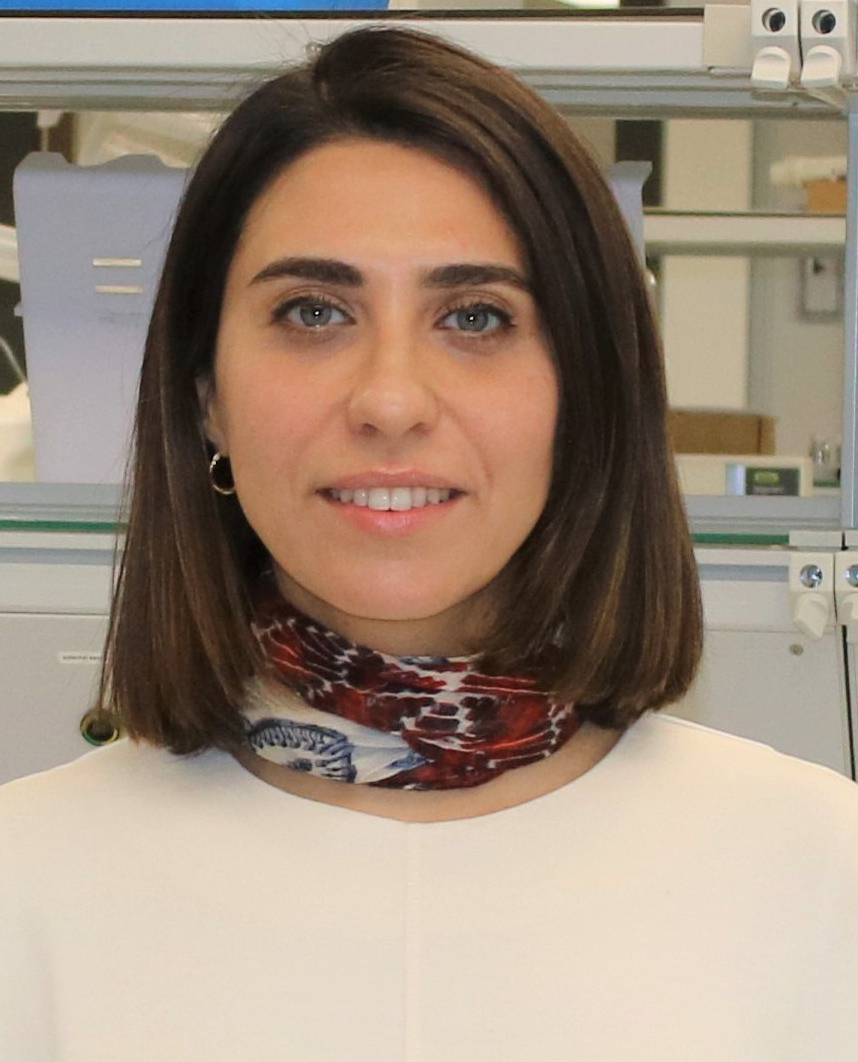 Perinur Bozaykut Eker, PhD
Perinur Bozaykut Eker, PhD
Associate Professor
Molecular Biology & Genetics
Acibadem University
Istanbul
Turkey
Dr. Perinur Bozaykut-Eker graduated from Marmara University with a BS degree in Biological Sciences and pursued her MSc and PhD degrees in Medical Biochemistry at Marmara University. During her MSc studies, she took part as visiting researcher in King’s College London at Cardiovascular Division. Later, she worked as a postdoctoral fellow at Harvard Medical School & Genetics Division where her research involved transcriptomics analysis of aging & lifespan extension and targeted drug repurposing. Currently, Dr. Perinur Bozaykut Eker is working as an Associate Professor at Acibadem University. Her research primarily revolves around identifying distinctive interventions through the utilization of long-lived models and applying them to short-lived models or to enhance human healthspan. Dr Bozaykut-Eker has received several awards from Physiological Society, SFRR-Europe, and the Turkish Biochemistry Society so far. In 2022, she has been elected as the Turkey president of the "International Society on Aging and Disease".
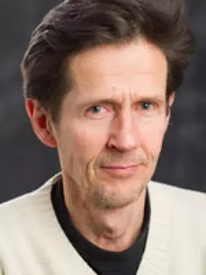 Brun Ulfhake, PhD
Brun Ulfhake, PhD
Professor
Division of Clinical Physiology
Department of Laboratory medicine
Karolinska University Hospital
Karolinska Institutet
Stockholm
Sweden
Brun Ulfhake received his M.D. from Karolinska Institutet in 1980. He combined his medical studies with researching. In 1982 he received his Ph.D. with a dissertation about electrical characteristics, function and structure in central nerve cells. Thereafter he was active in the clinic as an anesthesiologist and diving physician, while at the same time he carried out neurobiological research at Karolinska Institutet. In 1988 he was appointed Associate Professor, and in 1994 was appointed University Lecturer. For a period in the beginning of the 1990s, Brun Ulfhake was a postdoctor with NIH in USA, and since 1991 has carried out research at Karolinska Institutet on the connection between our genetic material and changes in the function of the nerve system during aging. Brun Ulfhake was appointed Professor in Anatomy at Karolinska Institutet on March 1, 2001. Brun Ulfhake has had a number of engagements within both teaching at Karolinska institutet as the Director of Anatomy Education, as well as being engaged in laboratory animal ethical matters. Since January 1, 2013, Brun Ulfhake has been the Director for Comparative Medicine.
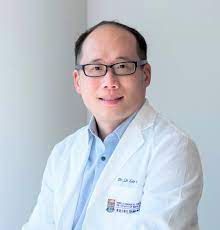 Lee Wei Lim, MD, PhD
Lee Wei Lim, MD, PhD
Assistant Professor and PI
the University of Hong Kong
Hong Kong
Dr. Lim’s research is focused on basic and translational neurosciences looking at existing neuromodulatory and neuropharmacological treatments for neurodegenerative and psychiatric disorders. More specifically, his interests are directed towards understanding the neural basis of mood and anxiety disorders, as well as neurodegenerative diseases, particularly Alzheimer’s disease and other aging-related cognitive disorders. His research encompasses different interrelated methodologies including cellular and molecular techniques, electrophysiology, behavioral and neurochemical methods, which together provide a multidisciplinary approach to understanding how neurostimulation interfaces with brain networks via controlling neuronal activity and the microcellular environment.
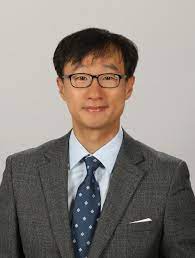 Kyung-Jin Min, PhD.
Kyung-Jin Min, PhD.
Director of Korean Society for Gerontology
Associate Professor
Department of Biological Sciences
Inha University
Incheon
South Korea
Dr. Kyung-Jin Min is Associate Professor at the Department of Biological Sciences, Inha University, Incheon, Korea. Dr. Min received his BS and MS in Biology from Korea University, and PhD in Zoology at University of Texas, Austin. Previously he did his post-doctoral research at Brown University and was assistant professor at University of Alaska, Anchorage.
His research focuses on testing compounds and extracts that may be able to positively impact the underlying causes of aging-related disease using Drosophila, the fruit fly. Recently, his experiments were able to confirm these effects for curcumin, D-chiro-inositol and mistletoe extracts. Another recent result of his research showed that the life expectancy of Korean eunuchs are at least 14 years longer than normal men, showing the clear cost to human longevity by reproduction. He currently serves as associate editor of Entomological Research, review editor of Frontiers in Genetics of Aging.
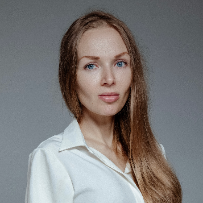 Evelyne Yehudit Bischof, MD, MPH, FEFIM
Evelyne Yehudit Bischof, MD, MPH, FEFIM
Professor Shanghai University of Medicine and Health Sciences | Shanghai, PRC
Visiting professor, Tel Aviv University School of Medicine
Chief physician Internal medicine University Hospital of Jiatong School of Medicine Renji | Shanghai
International Center for Multimorbidity and Complexity in Medicine (ICMC), Universität Zürich, Schweiz
Longevity concierge physician Human Longevity Inc. | San Diego
Prof. Evelyne Bischof is a chief physician associate of internal medicine at University Hospital Renji of Jiaotong University Shanghai and concierge longevity physician for executive longevity patients. Currently, she is also affiliated with the International Center for Multimorbidity and Complexity in Medicine (ICMC), Universität Zürich, and was prev. senior physician of internal medicine at the University Hospital Basel. She is a Swiss board certified (FMH) trained in Europe, USA and China (Harvard Medical School affiliated hospitals (Mass General Hospital, Beth Israel MD, Dana Farber Institute) and Columbia University NYC; Tongji University hospitals, Shanghai and University Hospitals of Zurich and Basel (Switzerland). Her research focus is oncology and longevity medicine, Artificial Intelligence (AI) and digital health, precision medicine, biogerontology, and geronto-oncology. She published over 80 peer-reviewed papers, is a frequent speaker at scientific and medical conferences in Asia and Europe. Long term member of various medical societies, e.g. European Federation of Internal Medicine, World Academy of Medical Sciences, Swiss Society of Internal Medicine etc. Evelyne spent a decade practicing medicine, lecturing at medical schools and performing clinical and translational research in New York, Shanghai and Basel, with extensive experience in scientific research and clinical practice at the following well-known and highly reputable institutions: University Hospital of Basel, Fudan Cancer Institute and Hospital; Zhongshan Hospital, Renji Hospital and Shanghai East Hospital. She sits on several scientific and advisory boards of biotech and longevity hubs.
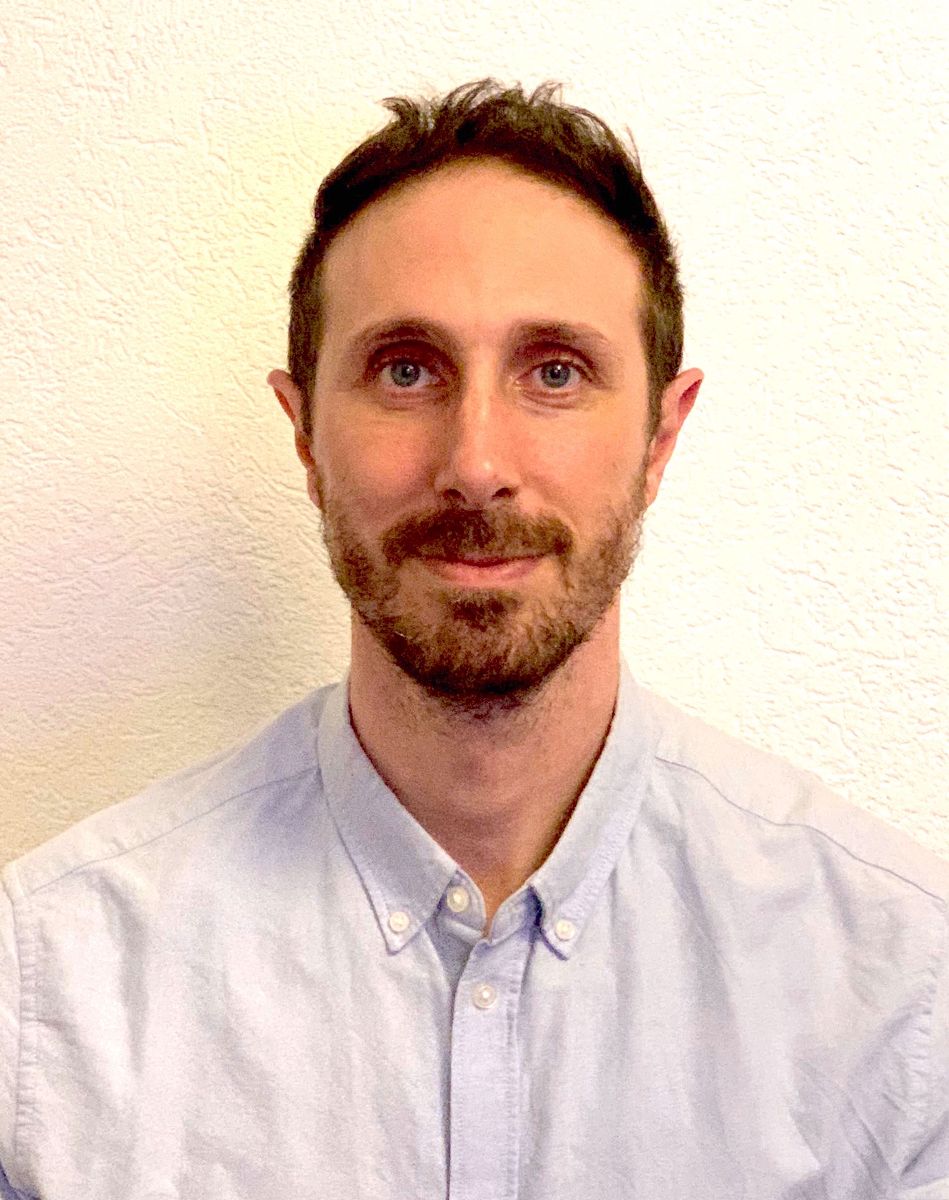 Vincenzo Sorrentino, PhD
Vincenzo Sorrentino, PhD
Assistant Professor, Department of Biochemistry
Healthy Longevity Translational Research Program
Yong Loo Lin School of Medicine
National University of Singapore
Singapore
Vincenzo Sorrentino is an Italian-born scientist in the fields of aging, mitochondrial biology and neuromuscular degeneration. After his PhD Cum Laude obtained at the University of Amsterdam in medical biochemistry, he carried his postdoctoral research in Prof. Johan Auwerx’s lab at the EPFL in Switzerland. His work focused on mitochondria and NAD+ metabolism in Alzheimer’s disease and muscle aging, with his discoveries appearing in Nature (2017) and Cell Reports (2021). From 2019 till 2022, he took a role as Group Leader at the Nestlé Institute of Health Sciences in Switzerland, to lead research focused on integrating basic discoveries on natural bioactives that modulate NAD+, mitochondria and protein homeostasis with their possible translation into clinical applications. Currently, he is Assistant Professor and launched his research lab at the NUS with the Dept. of Biochemistry and the Healthy Longevity Transitional Research Program, Yong Loo Lin School of Medicine.
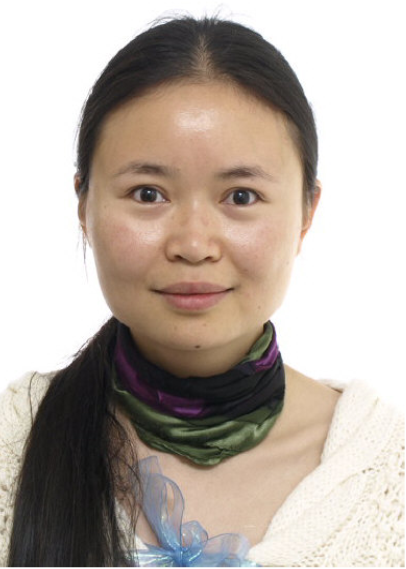 Jing YE (M.D.; PhD)
Jing YE (M.D.; PhD)
Professor of Shanghai Jiaotong University, School of Medicine
Vice Director of Aging Medical Center, Shanghai Ruijin hospital affiliated to Shanghai Jiaotong University, School of Medicine
- Co-head (with Pr Y. Lu and Pr E Gilson) of the team ‘Telomere and Aging Related Disease’ within the CNRS-INSERM-UNS-Jiaotong University LIA (International associated laboratory) “Cancer Aging and Hematology” at Ruijing Hospital, affiliated to Shanghai Jiaotong University, School of Medicine
As a clinical doctor and research scientist, Jing Ye is mainly interested in understanding the mechanism of telomere dysfunction induced aging and aging related clinical pathologies. During her early carrier as a researcher, Dr Jing Ye identified a crucial role of the shelterin protein TRF2 during telomere replication. This was followed by unexpected results pointing to “non canonical” roles of the same protein in neuronal gene expression and function. These seminal discoveries contributed to the concept of tissue-specific signaling of telomere dysfunction. Her current work is devoted to understanding how these pathways shape systemic aging. As a clinical doctor, Dr Jing Ye makes a substantial effort to translate her results in clinic, particularly by the development of innovative telomere assays to screen compounds preventing the installation of neurodegenerative and metabolic disorders in the aging population. Until now, Dr. Jing Ye has published more than 50 papers in peer reviewed journals, including Cell, Mol Cell, Nat Struct Mol Biol, Aging Cell, Nucleic Acid Res, etc.
 Tzipi Strauss, MD
Tzipi Strauss, MD
Professor
the Director of Neonatology at Sheba Medical Center
Tel Aviv University
Israel
Prof. Strauss is Head of the Department of Neonatology at the Sheba Medical Center and Professor at the School of Medicine. She obtained her M.D. from the Rappaport Faculty of Medicine at the Technion Institute of Technology and an MPH from the School of Public Health at Harvard. She performed her residency in Pediatrics at the Sheba Medical Center. During her residency she performed research at the Leiden University Medical Center in Holland. Formerly she served as Deputy Director of the Edmond and Lily Safra Children’s Hospital. She has recently established the first academic and clinical research center for Longevity in Israel.
Prof. Strauss’ main research topics are hemostasis and prematurity. She has studied how breast milk feeding (BMF) practices among very preterm infants influence their growth, as well as the recent consequences of vaccination during pregnancy on maternal-neonatal transfer of SARS-CoV-2 antibodies. Her focus is that the children of today are the adults of tomorrow, so that the quality and care will affect us throughout adulthood and the aging process. She has published more than 50 original articles in international journals.
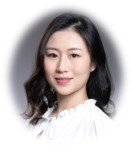 Yuan HUANG
Yuan HUANG
Technology Transfer Director of Hong Kong Quantum AI Lab
Managing Director of HK Longevity Medical Center
Venture Partner of LongeVC
Fellow of the Royal Society of Medicine (UK)
Fellow of Guangzhou Youth Federation
Dr. Christine Huang Yuan is the Technology Transfer Director of Hong Kong Quantum AI Lab, Founder and Managing Director of HK Longevity Medical Center. She is also a Senior Research Associate at the University of Hong Kong. Christine was selected as one of Forbes China 2020 “30 Under 30 (Healthcare and Science)” for developing cancer liquid biopsy technology, and a Fellow of the Royal Society of Medicine (UK). Christine was elected as a Fellow of Guangzhou Youth Federation in Nov 2022.
Christine graduated from Southern Medical University with Doctor of Medicine and obtained a master’s degree from the Li Ka Shing Faculty of Medicine of the University of Hong Kong and later on trained in the neurology department of Queen Mary Hospital in Hong Kong, where she participated in several large-scale international clinical trials. Dr. Huang is skilled in translational medicine, especially in the fields of AI-driven medicine, age-associated diseases (neurodegenerative diseases, cancer, diabetes, etc.) and longevity medicine.




